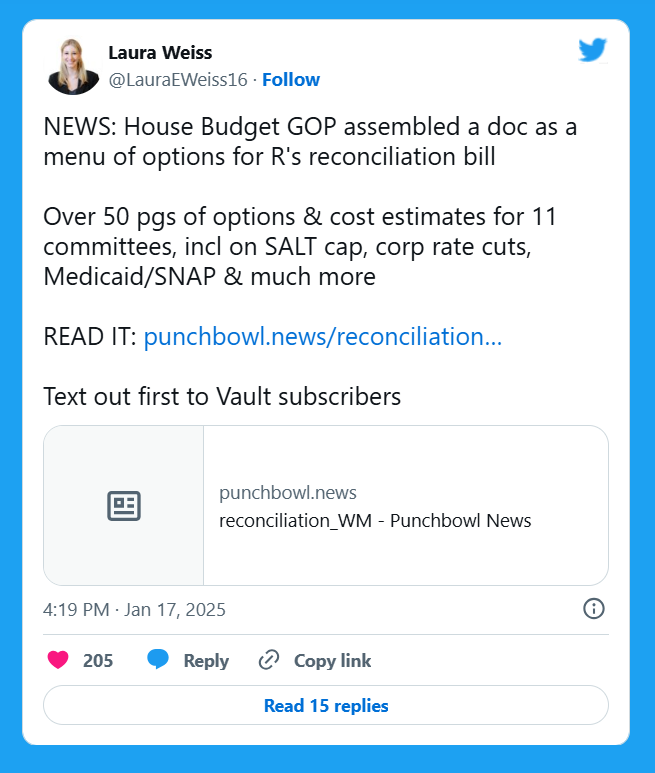Republicans Reveal Dark Plan to Let Kids Go Hungry to Fund Tax Cuts [View all]
 Republicans released a list of options for their reconciliation bill.
https://newrepublic.com/post/190399/republicans-plan-cut-medicaid-tax-cuts
https://archive.ph/hatyw
Republicans released a list of options for their reconciliation bill.
https://newrepublic.com/post/190399/republicans-plan-cut-medicaid-tax-cuts
https://archive.ph/hatyw
 House Budget Committee Chair Jodey Arrington, Tom Williams/CQ-Roll Call, Inc/Getty Images
House Budget Committee Chair Jodey Arrington, Tom Williams/CQ-Roll Call, Inc/Getty Images
Republicans are looking to
gut and slash federal programs in order to afford an extension to Donald Trump’s 2017 tax plan. The extension, which overwhelmingly benefits corporations and could add as much as $15 trillion to the national deficit, would arrive at the expense of dozens of popular federal programs.
But perhaps most egregious among the penny-pinching proposals is a plan to literally take food away from hungry children by nixing free school meal plans made available to some of the poorest families in the country. Raising the threshold of eligibility for schools to receive the Community Eligibility Provision could save the government $3 billion over a span of 10 years, according to a menu-like list released by the House Ways and Means Committee intended to serve as cutting options for the House reconciliation package.

“The Community Eligibility Provision (CEP) allows the nation’s highest-poverty schools and districts to serve breakfast and lunch at no cost to all enrolled students without collecting household applications,” the proposal reads. “Instead, schools that adopt CEP are reimbursed using a formula based on participation in other specific means-tested programs, such as SNAP and TANF. Currently, schools can qualify if 40 percent of students receive these programs. This proposal would lift that to 60 percent.”
It shouldn’t take much to argue that taking food away from children is a bad thing. But data shows that food insecurity has been on the rise in the U.S. for the last several decades, and it has seen a considerable spike since the pandemic, according to the
USDA. It affects roughly one in seven American households, according to data from the
Food Research and Action Center, affecting an estimated 47.4 million people across the country.
snip


